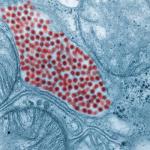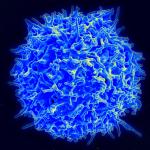The headline of an article by Erika Edwards, a health and medical reporter for NBC News, seems like nothing special.
"This year's flu season may be a bad one. Here's why you need a flu shot."
Disease
Mosquitoes suck, both literally and figuratively. No other animal on Earth is responsible for more human deaths than the lowly mosquito.
Some medical conditions are especially frustrating to physicians because they lack not only effective treatments but even a reliable means of diagnosis.
One of the great challenges to our immune system is to recognize “foreign invaders.” And there can be no greater foreign invader than that little bundle of joy we call all children, especially during pregnancy.
Although an annual exam is probably not necessary if you're young and healthy, it's a good idea to go to the doctor every once in a while. As he's prodding about, he might find something rather unexpected.
We rarely take a moment to reflect on the beauty, indeed, the awe-inspiring nature of what makes us tick.
"Things have not gotten as stupid as they are going to get."
What is the old saying about out of the mouth of babes? [1] It is the wisdom or at least honest opinions without the obfuscation that comes with socialization.
The Rand Corporation just released their study on the opioid crisis. Everything that follows our their words, gently edited and slightly rearranged. No facts or conclusions were harmed in this production.
Imagine if scientists invented a cure for cancer. Would you be interested in learning about it?












